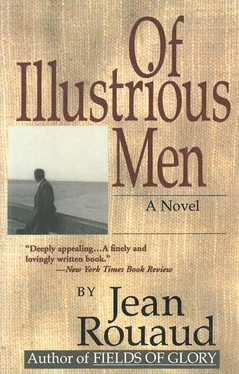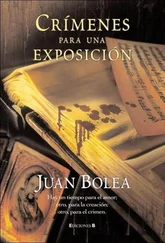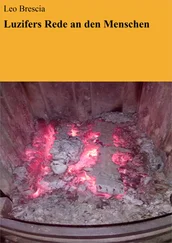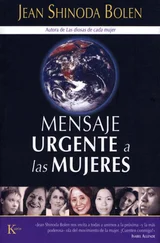Jean Rouaud - Of Illustrious Men
Здесь есть возможность читать онлайн «Jean Rouaud - Of Illustrious Men» весь текст электронной книги совершенно бесплатно (целиком полную версию без сокращений). В некоторых случаях можно слушать аудио, скачать через торрент в формате fb2 и присутствует краткое содержание. Год выпуска: 2011, Издательство: Arcade Publishing, Жанр: Современная проза, на английском языке. Описание произведения, (предисловие) а так же отзывы посетителей доступны на портале библиотеки ЛибКат.
- Название:Of Illustrious Men
- Автор:
- Издательство:Arcade Publishing
- Жанр:
- Год:2011
- ISBN:нет данных
- Рейтинг книги:4 / 5. Голосов: 1
-
Избранное:Добавить в избранное
- Отзывы:
-
Ваша оценка:
- 80
- 1
- 2
- 3
- 4
- 5
Of Illustrious Men: краткое содержание, описание и аннотация
Предлагаем к чтению аннотацию, описание, краткое содержание или предисловие (зависит от того, что написал сам автор книги «Of Illustrious Men»). Если вы не нашли необходимую информацию о книге — напишите в комментариях, мы постараемся отыскать её.
Of Illustrious Men — читать онлайн бесплатно полную книгу (весь текст) целиком
Ниже представлен текст книги, разбитый по страницам. Система сохранения места последней прочитанной страницы, позволяет с удобством читать онлайн бесплатно книгу «Of Illustrious Men», без необходимости каждый раз заново искать на чём Вы остановились. Поставьте закладку, и сможете в любой момент перейти на страницу, на которой закончили чтение.
Интервал:
Закладка:
On Sundays, at Alphonse’s invitation, he often spent a good part of the day with the Burgauds, where there were always several guests. The tailor prided himself on being generous and hospitable. His intellectual curiosity had earned him the friendship of a theologian and a Dominican friar — from which friendships it might be deduced that he was assailed by metaphysical doubts — and allowed him to keep that of the companions of his apprentice years in Paris when, as poor young provincials, they used to chase all over the City of Light to take part in the claque in exchange for a seat at a concert. Two of these friends, a graduate of the Ecole Polytechnique and a journalist, who had later made their way in the world, still came to visit their humble friend, and even more frequently nowadays since life in occupied Paris had become really difficult. They would all, and others as well, in particular a Chinese student — no one could imagine how he had landed there — come together in the big house in Riancé. The tall young man had been reluctant to join in their animated conversations ever since Alphonse, without naming him, had put him on his guard: the tailor had reported that the Count had told him of his amazement at seeing a copy of Balzac’s Louis Lambert on the bookshelf at the farm, and that he found it hard to believe that such a book was his farmers’ bedtime reading. This incident had prompted the theologian to call attention to the volumes on the living room bookshelves that were banned, and even to attack some right-thinking bourgeois authors. “Not all Bordeaux is fit to read,” he had declared, and this was enough to make you tremble, for if Henri Bordeaux, that fervent advocate of the moral order, the faith, and the family, was to be consigned to the forbidden books department, about the only thing left was The Imitation of Christ. This warning implied a serious threat for the future life of the master of the house, but he consoled himself by leaning back voluptuously in his big patinated leather armchair and enjoying the Havana cigar brought by his journalist friend, the founder-editor of La Revue des Tabacs. For Alphonse Burgaud was so constituted that he wavered between the sacred and the profane, being capable of going on retreat for a week with the monks at the abbey of La Melleraye, sharing their Spartan meals, attending their services, but also of disappearing for several days on end without anyone ever discovering where or with whom — which was no doubt not quite so blameless. But in both cases the result more or less came to the same thing: it was always a way of escaping from the house.
His love of music bridged the gap between the two sides of this waverer. Alphonse had won a first prize for violin playing at the conservatory in Nantes, and he had even studied harmony and counterpoint at the one in Paris, so music played a big part in the lives of the Burgauds. One friend brought his flute, another his viola, a third his cello; it was all the same to Alphonse whether he sat down at the piano or took up his violin, and the evening continued to the strains of this improvised chamber orchestra whose sounds, in the summer, could be heard through the open window and provided an accompaniment to Riancé’s nightly slumbers.
Claire Burgaud was somewhat less than enchanted by these meetings. Apart from the fact that she saw them as yet another way for her husband to exile himself, she admitted — perhaps as a reaction — that music got on her nerves.
And to make her point perfectly clear, on the day when Marthe was giving birth to her third child, irritated beyond measure that anyone could indulge in such a futile activity while her daughter was suffering the pains of parturition, she burst into the living room, snatched the flute from the lips of a salesman of ladies’ lingerie whom Alphonse had made a special journey to fetch from the station at Ancenis, and broke it over her knee as if she were breaking a branch. She had then handed the two halves of the flute back to the unfortunate musician and announced, “It’s a boy.” These outbursts of hers were legendary. She boasted that she had used up two veils on her wedding day, having torn the first one when it got caught in a door she had just violently slammed. (It must be said in her defense that this event could certainly not have been the happiest in her life, as their marriage had been more or less arranged by their respective families.) Her abrupt manner had once even caused her to impale her hand on one of those spike things that people keep on their desks to stick their bills on, much as Pascal piled up his Pensées. At the same time it perforated the paper it went right through the palm of her hand, leaving the impatient woman with a brown spot like the ones old people have on their hands, and when she did get older you couldn’t tell the difference. There was an underlying bitterness in the way she did everything in double-quick time, as if everything was a boring chore to be gotten rid of as quickly as possible. Even her declared aversion to music actually went back to a frustrated vocation. As a girl, she had spent hour after hour practicing, but her father had been so exasperated by the fact she didn’t do anything else that he had taken his ax to her grand piano, and now all that remained of it was the little mahogany table in a corner of the living room.
* * *
This was how the tall young man made the acquaintance of Marthe’s two younger sisters. Anne, the middle one, was discreet, graceful, with a long, delicate nose, as slender as a Tanagra figurine (the Burgaud girls were all small: Anne, the tallest, was barely five foot), and seemed to hold herself aloof from the turbulence of the household, remaining silent, embroidering, strumming on the piano, always ready to join her father in his workshop and help the seamstresses with their sewing and machining. Lucie, the youngest sister, was still adolescent, slightly plump, always lively, quick to flare up, and had immediately offered her services to take his letters to him at the farm. He watched her arriving on her bicycle, always at top speed, cutting through the forest, less to shorten the journey than to add spice to her secret mission, bumping over the cart tracks, crouched over her handlebars, and still out of breath when she handed him the envelopes that he glanced at rapidly, turning them over and over as he looked for the longed-for handwriting, and as he slid them into his pocket she could read the disappointment on his face. “The letters aren’t getting through,” she would say, to soften the blow and suggest a reason for this unbearable delay. He would nod sadly. “The war always gets the blame,” he would reply, as a way of casting doubt on the selective delivery of the mail that allowed his aunt’s letters through and merely kept back those from his beloved. Although he had never mentioned it in her presence, Lucie knew his story. She had even considered writing to that Emilienne herself, to get her to break the silence in which she had been keeping her unofficial fiance. But from what she had managed to gather from Etienne — although she hadn’t been able to glean all the facts — it rather looked as if the blond Milady had been acting out her role in real life. Had the rumor reached Joseph? One day he put his letters in his pocket without even looking at them.
By way of consolation, whenever she got a chance Lucie would smuggle a little treat among the books he asked her to bring him — a bar of chocolate, which, as he always liked to say, was his vice. For this kind thought he nicknamed her “Little Red Ridinghood.” And since on that day the messenger happened to be wearing a blue-hooded cape, perhaps wanting to bear a closer resemblance to the young man’s description, she blushed.
He had now exhausted both the possibilities of the Bur-gauds’ library and the dividends of life in the open air. When the harvest was over, he announced he was going to leave. He offered to fill the gap Michel Christophe had left in his father’s workshop. And that was how he came to be under the roof of an old apartment block, strengthening its framework, on September 16,1943, when the siren reverberated over Nantes — the howling of a terrified animal that the inhabitants had learned to take in their stride. The alerts had been almost continuous for several weeks with no other damage than an enforced break of an hour or so. People immediately stopped whatever they were doing and rushed down into the shelters in the cellars buried deep under the old city. The stone vaults that had already withstood three or four centuries were once again pressed into service. The knowledge of the cathedral builders was considered more reliable than that of the most out-and-out modernists.
Читать дальшеИнтервал:
Закладка:
Похожие книги на «Of Illustrious Men»
Представляем Вашему вниманию похожие книги на «Of Illustrious Men» списком для выбора. Мы отобрали схожую по названию и смыслу литературу в надежде предоставить читателям больше вариантов отыскать новые, интересные, ещё непрочитанные произведения.
Обсуждение, отзывы о книге «Of Illustrious Men» и просто собственные мнения читателей. Оставьте ваши комментарии, напишите, что Вы думаете о произведении, его смысле или главных героях. Укажите что конкретно понравилось, а что нет, и почему Вы так считаете.












